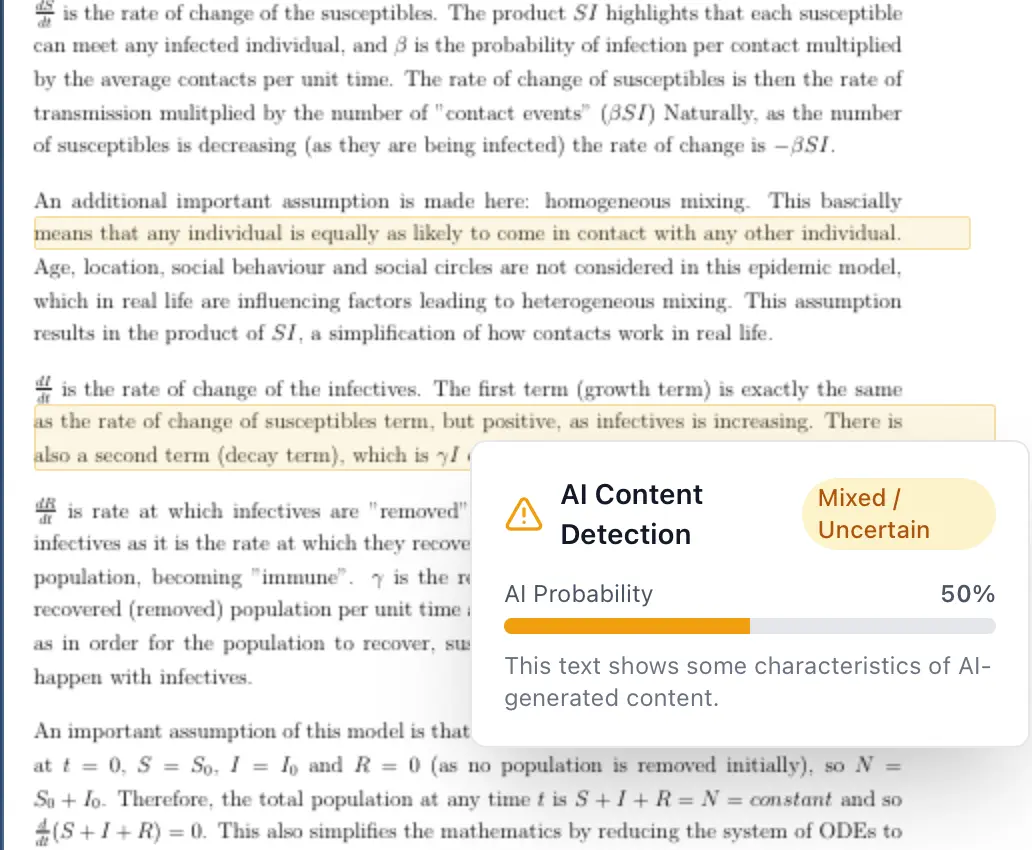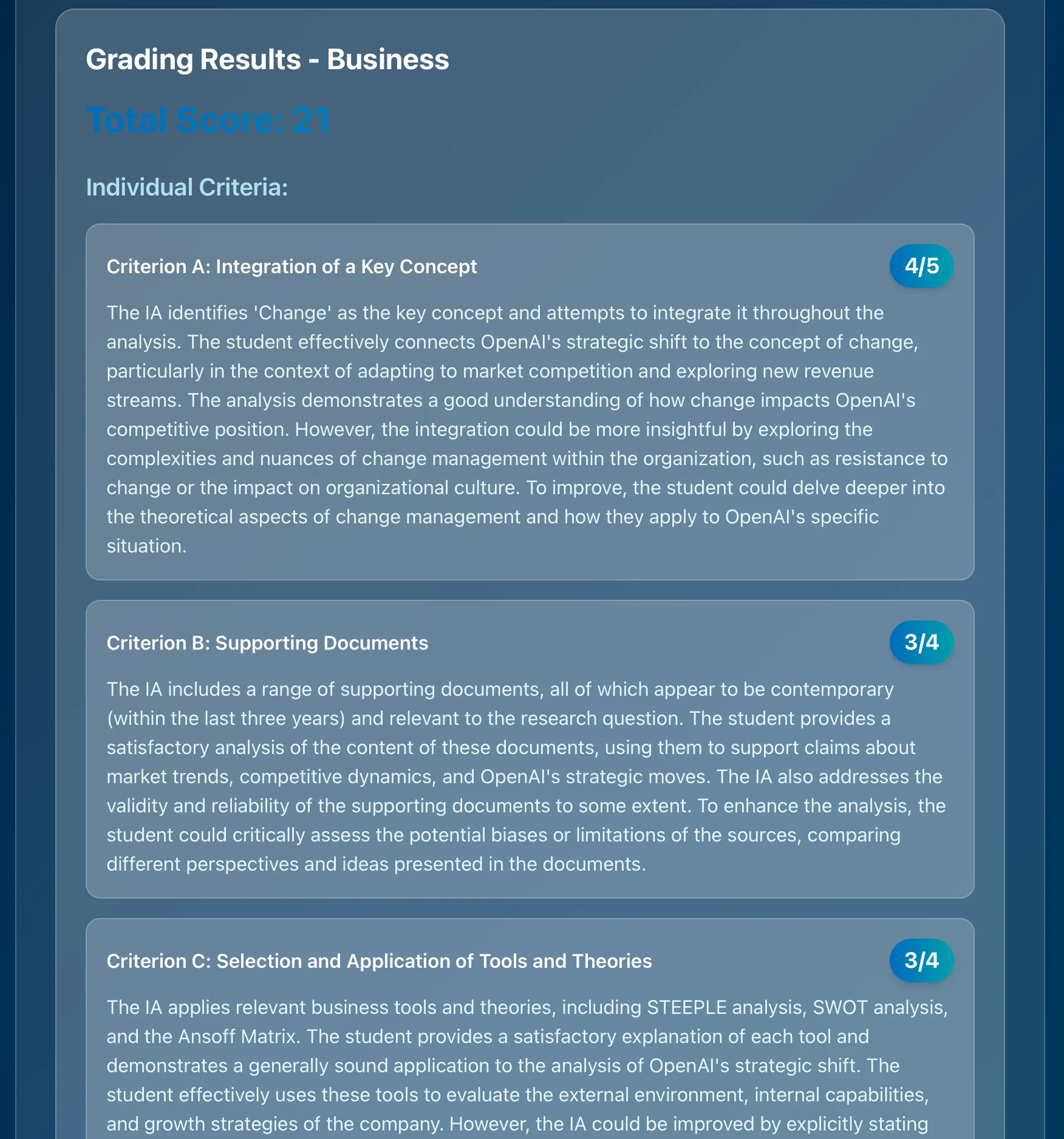How to Write Meaningful CAS Reflections
CAS (Creativity, Activity, Service) is a core component of the International Baccalaureate (IB) Diploma Programme, designed to foster personal and interpersonal development through experiential learning. Writing meaningful CAS reflections is crucial for demonstrating your learning journey and meeting the IB's requirements. This guide will provide you with practical strategies to craft reflections that not only showcase your experiences but also demonstrate genuine growth and understanding. We'll cover everything from understanding the reflection process to avoiding common pitfalls and leveraging technology to enhance your reflections.
Understanding the Importance of CAS Reflections
CAS isn't just about participating in activities; it's about reflecting on those experiences and understanding how they've shaped you. Your reflections are the key to unlocking the full potential of CAS. They allow you to:
- Demonstrate Learning Outcomes: Show how your activities have helped you achieve the seven CAS learning outcomes.
- Connect Experience to Theory: Link your practical experiences to theoretical concepts and personal insights.
- Develop Self-Awareness: Gain a deeper understanding of your strengths, weaknesses, and values.
- Meet IB Requirements: Fulfill the IB's assessment criteria for CAS.
Struggling with IB Assessments?
Get instant, detailed feedback on your work with AI that understands IB criteria.

Structuring Your CAS Reflections: A Step-by-Step Guide
A well-structured reflection is easier to write and more impactful to read. Consider using the following framework:
1. Description of the Experience
Begin by briefly describing the activity or experience you're reflecting on. Include:
- What: What did you do?
- When: When did it take place?
- Where: Where did it happen?
- Who: Who was involved?
Example: "I volunteered at the local animal shelter every Saturday morning for three months, assisting with feeding, cleaning, and socializing the animals. I worked alongside other volunteers and shelter staff."
2. Feelings and Reactions
Describe your initial feelings and reactions to the experience. Be honest and specific.
- How did you feel before, during, and after the activity?
- What surprised you?
- What challenged you?
Example: "Initially, I felt nervous about handling the animals, especially the larger dogs. I was surprised by how quickly I bonded with some of them and how rewarding it felt to provide them with comfort and care. The biggest challenge was dealing with the emotional toll of seeing animals in need."
3. Analysis and Interpretation
This is the core of your reflection. Analyze your experience and draw meaningful conclusions.
- What did you learn about yourself?
- What did you learn about others?
- How did this experience connect to the CAS learning outcomes?
- How did this experience change your perspective?
Example: "I learned that I'm more resilient and compassionate than I thought. I developed a greater appreciation for the work of animal shelters and the importance of animal welfare. This experience directly connected to the CAS learning outcome of 'demonstrating perseverance and developing skills' as I overcame my initial fears and learned new animal handling techniques. It also broadened my understanding of community needs and the challenges faced by vulnerable populations."
4. Evaluation and Action
Evaluate the effectiveness of your actions and identify areas for improvement.
- What went well?
- What could you have done differently?
- What are your next steps?
- How will you apply what you've learned to future experiences?
Example: "Overall, the experience was very positive. I could have been more proactive in seeking out opportunities to learn from the shelter staff. In the future, I plan to continue volunteering at the shelter and explore ways to advocate for animal rights within my community. I will also research different animal welfare organizations and consider making a donation."
CAS Learning Outcomes: The Key to Meaningful Reflections
Your reflections should demonstrate how your activities have helped you achieve the seven CAS learning outcomes:
- Identify own strengths and develop areas for growth: Reflect on your personal development and identify areas where you've improved.
- Demonstrate that challenges have been undertaken, developing new skills in the process: Show how you've overcome obstacles and acquired new abilities.
- Demonstrate how to initiate and plan a CAS experience: Explain how you took the initiative to organize and execute your activities.
- Show commitment to and perseverance in CAS experiences: Highlight your dedication and persistence in completing your activities.
- Demonstrate skills and recognize the benefits of working collaboratively: Describe how you worked with others and the advantages of teamwork.
- Demonstrate engagement with issues of global significance: Connect your activities to broader global challenges and issues.
- Recognize and consider the ethics of choices and actions: Reflect on the ethical implications of your decisions and actions.
Common Challenges and Mistakes in CAS Reflections
Many students struggle with writing meaningful CAS reflections. Here are some common pitfalls to avoid:
- Superficial Reflections: Avoid simply summarizing your activities without analyzing your experiences or drawing meaningful conclusions.
- Lack of Specificity: Provide concrete examples and details to support your claims. Don't make vague statements.
- Ignoring the Learning Outcomes: Ensure that your reflections directly address the CAS learning outcomes.
- Focusing Only on the Positive: Be honest about challenges and setbacks. Reflecting on difficulties can be just as valuable as reflecting on successes.
- Procrastination: Don't wait until the last minute to write your reflections. Write them regularly throughout your CAS journey.
Pro Tip: Get AI-Powered Grading
Stop second-guessing your grades. Get instant feedback aligned with official IB rubrics.

Advanced Tips and Strategies for Exceptional CAS Reflections
To take your CAS reflections to the next level, consider these advanced strategies:
- Use the STAR Method: The STAR method (Situation, Task, Action, Result) can help you structure your reflections and provide specific details about your experiences.
- Incorporate Visuals: Include photos, videos, or other visual elements to enhance your reflections and make them more engaging.
- Seek Feedback: Ask your CAS coordinator, teachers, or peers to review your reflections and provide constructive criticism.
- Connect to Your Personal Interests: Choose CAS activities that align with your passions and interests. This will make your reflections more authentic and meaningful.
- Use a Reflective Journal: Keep a journal to record your thoughts and feelings throughout your CAS journey. This will make it easier to write your reflections later on.
Technology and Modern Assessment: Leveraging AI for Better Feedback
In today's digital age, technology can play a significant role in enhancing the CAS reflection process. AI-powered tools can provide valuable feedback on your reflections, helping you identify areas for improvement and ensure that you're meeting the IB's requirements.
Marksy, as a leading AI grading assistant, helps teachers provide consistent, detailed feedback on IB assessments, including CAS reflections. Marksy uses official IB criteria to ensure accuracy and fairness, saving educators time while maintaining assessment quality. For students, this means receiving targeted feedback that pinpoints areas for improvement, leading to more impactful and meaningful reflections.
By leveraging AI, teachers can provide more personalized guidance, and students can gain a deeper understanding of their learning journey. This not only improves the quality of CAS reflections but also fosters a more effective and engaging learning experience.
Conclusion: Embrace the Power of Reflection
Writing meaningful CAS reflections is an essential part of the IB Diploma Programme. By following the strategies outlined in this guide, you can craft reflections that not only meet the IB's requirements but also help you grow as a person. Remember to be honest, specific, and reflective. Embrace the power of reflection and use it to unlock your full potential.
Next Steps:
- Review your current CAS reflections and identify areas for improvement.
- Start using the STAR method to structure your reflections.
- Seek feedback from your CAS coordinator or teachers.
- Consider using a reflective journal to record your thoughts and feelings.
- Try Marksy for free to experience how AI-powered feedback can enhance your IB scores and streamline your grading workflow!